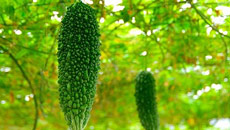With genome decoding of tsetse fly that causes the potentially fatal sleeping sickness disease, scientists have discovered new clues to the diet, vision and reproductive strategies of the insect.
More effective ways of controlling the population of the fly that feeds only on blood can soon be on the horizon, experts feel.
“This really accelerates our ability to do basic research on this fly," Geoffrey Attardo of the Yale School of Public Health in US was quoted as saying.
Found mostly in sub-Saharan Africa, tsetse flies carry protozoan parasites that cause sleeping sickness (trypanosomiasis) in humans, and a similar disease (nagana) in livestock.
The tsetse has extra genes associated with the break down and tolerance of blood, and fewer linked to the metabolism of carbohydrates, a genomic signature of flies that feed on sugar.
The scientists focused on the insect's reproductive strategy as interfering with the reproductive system can be an effective way of controlling its population.
Instead of laying eggs, the female tsetse fly nourishes a single larva in its uterus using a milk-like substance.
The researchers discovered an unknown family of proteins that could play a role in holding together the fat and liquid parts of the milk.
Understanding how these genes work could be key to stymie production of the milk-like substance, thereby starving the growing larvae.
For the research, the scientists studied G. morsitans, the most preferred species for researchers studying sleeping sickness.
An estimated 70 million people remain at risk for sleeping sickness.
The findings appeared in the journal Science.





